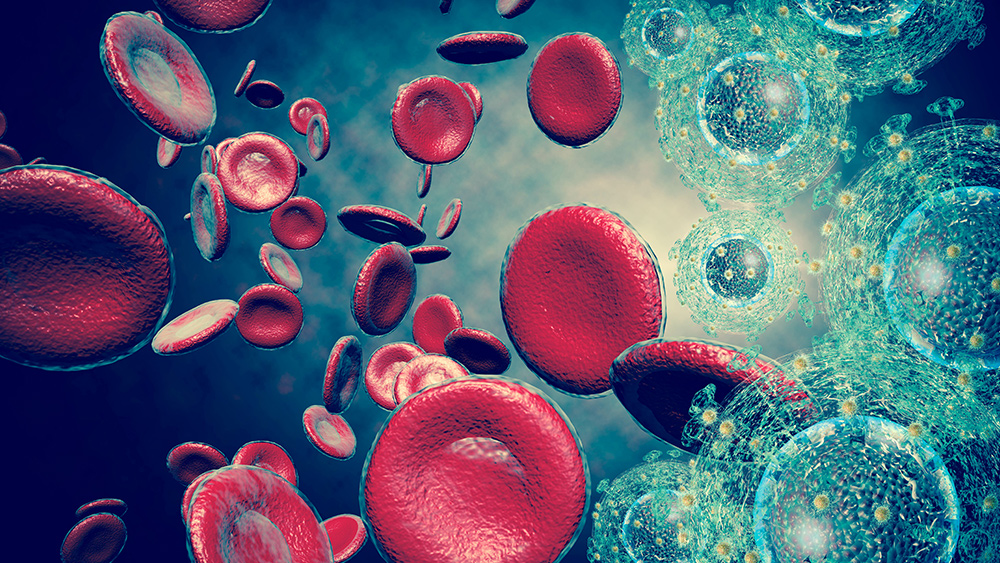Doctors share their most effective strategies for treating “seasonal” illnesses
01/04/2023 / By Lance D Johnson

Public health safety measures have failed the population. Plexiglass barriers, swabs, face masks, sanitizers, floor arrows, social distancing, and isolation have only made the population dumber and weaker – unable to adapt to their environment. Today, a barrage of illness is currently sweeping through the country – from influenza, RSV, and pneumonia to various cold viruses, enteroviruses, and covid-19 variants.
Several ear, nose, and throat doctors (otolaryngologists) recently shared their strategies for treating “seasonal” illness in the Wall Street Journal. Their professional advice varies and offers insight into the failing state of health in the United States. Some advice is basic common sense, and other advice is the reason why sickness and severe disease is pervasive in the first place.
Doctors share reasonable, conflicting, and incomplete advice on treating infections
The doctors agree that it’s important to be up-to-date on flu shots and covid-19 vaccinations, including boosters. This advice is paradoxical, since the doctors also suggest various ways to treat infections — infections that the vaccines were supposed to prevent in the first place. Some of these treatments include elderberry tablets, chicken noodle soup, and vitamin C. The doctors also said that proper hydration and rest are key to overcoming any infection, which is absolutely true.
Marc G. Dubin, an otolaryngologist from Towson, MD suggests two medications when a cough or congestion is present. To clear congestion, he suggests any medication that includes the active ingredient guaifenesin. This expectorant drug loosens up mucus, allowing the body to remove it more efficiently. To suppress a cough, Dr. Dubin suggests taking dextromethorphan. While suppressing a cough may prevent a sore throat and a headache, it’s worth noting that the cough is sometimes necessary to expel mucus from the lungs and throat. To recover more quickly, one should aim to thin the mucus with anti-inflammatory herbs and spices to improve the efficacy of the cough and shorten the duration of illness. It’s also important to avoid refined sugars and inflammatory foods when sickness is imminent.
Dr. Dubin does avoid antihistamines that contain diphenhydramine. This drug may cause thicker mucus secretions that are harder to cough up. Dr. Dubin recommends nasal irrigation using a saline solution. He recommends distilled or boiled water mixed with salt solution packets. “If you just pump regular water in your nose, it can lead to more swelling,” he says.
Sterling Ransone, a family physician in Deltaville, VA., uses an oral decongestant containing pseudoephedrine (Sudafed) or a nasal spray decongestant (Afrin), but she will only use these for a few days, due to the side effects. These decongestants cause high blood pressure and rebound swelling and inflammation in the sinuses. Dr. Ransone keeps a supply of these drugs every November. When she gets infected, she believes the drugs prevent her from infecting others. There is no clinical evidence to suggest that suppressing symptoms will stop the spread of infection. In fact, there is evidence that suppressing fever only lengthens the duration of viral shedding. It only makes sense that suppressing a cough may slow the body’s ability to clear the infection.
This is why Phoenix Pediatrician Gary Kirkilas avoids over-the-counter cold medicines and fever reducers, because they don’t alter the course of the illness. He does, however, use Chloraseptic throat spray to numb a sore throat before he eats or goes to bed. This over-the-counter medication contains the active ingredient, phenol, which is considered toxic when used orally in humans. Pineapple juice, raw honey, or peppermint oil are safer, more effective analgesics for alleviating a sore throat and cough. A marshmallow root tea or mullein tincture can help soothe the mucous membranes and bring down inflammation in the sinuses, helping the body remove mucus.
Dr. Ransone said she keeps cans of chicken noodle soup handy every winter. To boost the medicinal quality of the soup, one should add garlic, onion, and cayenne to the broth. The capsaicin from the cayenne thins the mucus and opens up the airways. Garlic and onion contain compounds that fight viral infections. The chicken noodle soup itself provides fluids, electrolytes, carbohydrates and lean, digestible protein.
When one is in tune with their body and knows the first signs of any illness, they can more quickly respond with early treatments. Testing is a waste of time, especially when one knows what works for their body. Elderberry syrup, vitamin D, zinc, and various antiviral and antibacterial herbal medicines are valuable tools early on in the treatment of infection.
Sources include:
EPA.gov [PDF]
Submit a correction >>
Tagged Under:
alternative medicine, cayenne, chicken soup, cough suppresants, decongestants, Elderberry, fever reduction, food cures, food is medicine, garlic, herbal medicine, Herbs, leeks, Marshmallow Root, mullein, natural cures, natural health, natural medicine, onions, remedies, respiratory viruses, thinning mucus, vitamin D, zinc
This article may contain statements that reflect the opinion of the author





















